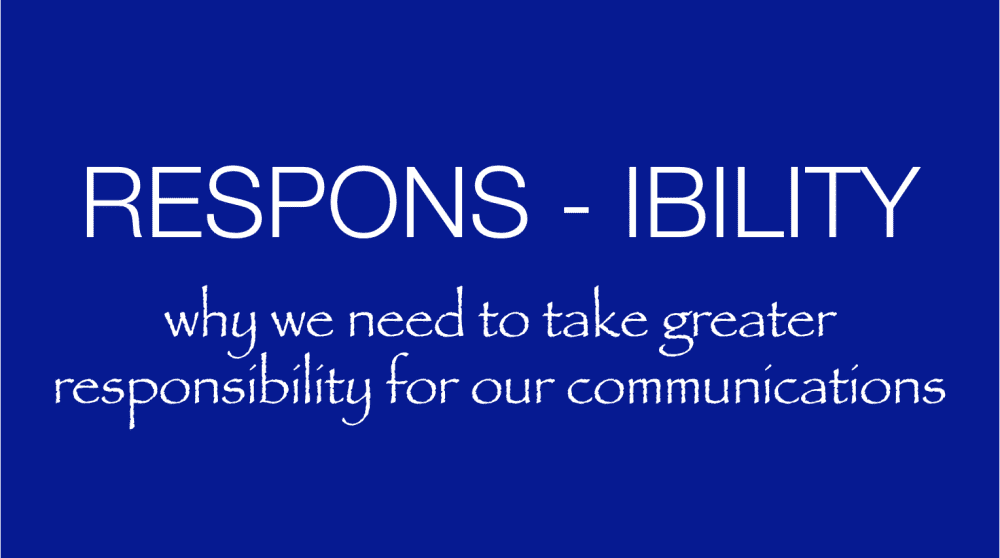How much responsibility do you take for your life and its current outcome? Chances are, you like me, have a self-awareness that is not as finely tuned as it needs to be. I certainly know I struggle with it myself!
There are two primary choices in life: to accept conditions as they exist, or accept the #responsibility for changing them - Denis Waitley @winwinman Share on X
The Role of Responsibility

In our book, Futureproof, co-written with Caleb Storkey, the first three chapters involve the three mindsets that are key to optimising one’s approach to disruption. Whichever new technologies may be useful (or threatening) for your business, it’s our assertion that it’s vital to adopt these three mindsets:
- Meaningfulness
- Responsibility
- Collaboration
It’s worth noting that they’re in descending order of importance. Nonetheless, each is important in its own way. In a recent conversation with a friend, I honed in on something we did not cover in the book, namely the singular importance at the root of responsibility: RESPONSE. In other words, in responsibility, there is also the responsibility to respond.
RESPOND /rɪˈspɒnd/ (intransitive): To act in return; to carry out an action or in return to a force or stimulus; to do something in response.
Shirking our Responsibility to Communicate
It was my friend’s and my mutual experience that MANY of our own outgoing messages go unanswered. This includes communications to friends, family and colleagues. There are (arguably) a few “lucky” individuals or celebrities with an outsized number of followers (read: hundreds of thousands) who can arguably afford not to be responsive to incoming messages from their fanbase or potential clients. In that case, the savvier person will figure out an alternative way to deal with the communications, which could include hiring an assistant or programming some IA (i.e. an AI-infused “intelligent assistant”) to sift through and help reply.
Not to Respond is a Choice, an Act
However, for the most part, in my version of reality, it seems hard to justify NOT to respond to a legitimate mail. It’s my wiring. Notwithstanding the spam and the unsolicited nonsense, when you receive a mail from a friend, colleague or a connection on Linkedin, it should be flagged as a NEED-TO-RESPOND. The way you communicate defines who you are in the eyes of the others. Share on X Yet, there are loads of people without even small fanbases who just don’t respond. Reasons for not responding are legion, of course. For example, it can be because the inbox is infested with unnecessary spam and Cover Your Ass (CYA) messages, etc. Others are overwhelmed by the quantity and confusion caused by the different media, platforms and devices. Or it could be both. If you’re someone who feels that you don’t need to reply, aren’t you then saying: “It’s just fine not to get back to me, too, when I send a message?” And to be clear, that’s true even when you (the sender) deem the message to be important. Some would have it that their messages are more important than the others. Outside of the self-aggrandisement, in a world where fortunes change, that can be a risky gambit to think all the time.
It’s my observation that the burgeoning level of irresponsibility is one of today's largest entropic forces in business and, dare I say it, in life's real-world relationships, too. Share on X
Why Should We Respond To Others?
My friend and I started to riff on the different reasons why we ought to respond to messages. With which do you agree/disagree? Which resonates most with you?
- To respond is to communicate: communication is vital to our vitality. Be alive!
- Behind every communication, maybe not right away, could be a reasonable business opportunity
- Demonstrate a sense of responsibility, for example: as a recognition of other’s work.
- To show your gratitude – be grateful for someone reaching out to YOU
- Treat others as you would like others to treat you.
Any other reasons come to mind? Your thoughts are most welcome!











